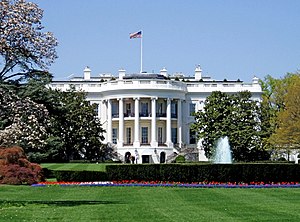Implementation of the Affordable Care Act making Medicare stronger for beneficiaries
U.S.
Department of Health and Human Services Secretary Kathleen Sebelius
today announced that three million Medicare beneficiaries nationwide
have received prescription drug cost relief
through the Affordable Care Act. To date, three million eligible
beneficiaries who fell into the drug coverage gap known as the donut
hole during 2010 have been mailed a one-time, tax-free $250 rebate
check.
“For
too long, many seniors and people with disabilities have been forced to
make impossible choices between paying for needed prescription
medication
and necessities like food and rent,” said Secretary Sebelius. “The
Affordable Care Act offers long overdue relief by lowering prescription
drug costs each year until the donut hole is closed.”
Eligible beneficiaries who fell into the coverage gap during 2010 are continuing to automatically receive rebate checks.
These checks are only the first step in how the Affordable Care
Act will reduce prescription drug costs for beneficiaries in the donut
hole each year until it is closed in 2020. Starting this year, eligible
beneficiaries in the coverage gap will receive
a 50-percent discount on covered brand name medications while in the
donut hole.
In addition, in 2011 Medicare will begin paying 7-percent of the price for generic drugs during the coverage gap.
Also
today, Secretary Sebelius released a new video message on the new
benefits the Affordable Care Act provides in 2011 for people on
Medicare. You can watch the video message
here.
The closing of the donut hole is just one of the ways seniors benefit from the Affordable Care Act. In addition to savings on prescription drugs, the law provides new benefits to Medicare beneficiaries when they visit their doctor starting this year:
- As of January 1, 2011, Original Medicare no longer charges out-of-pocket costs for the “Welcome to Medicare” physical exam and, for the first time since the Medicare program was created in 1965, Original Medicare now covers an annual wellness visit with a participating doctor, also at no cost.
- In addition to these annual wellness visits, most people with Medicare can now receive critical preventive services, including certain cancer screenings such as mammograms and colonoscopies, for free.
- Also this year, the Affordable Care Act will provide qualifying doctors and other health care professionals providing primary care to people on Medicare a 10-percent bonus for primary care services. This will help ensure that those primary care providers can continue to be there for Medicare patients.
People
with Medicare can learn more about these new benefits, search for
participating doctors in their area, and find other helpful
information by contacting a trained customer service representative
toll-free at 1-800-MEDICARE (1-800-633-4227) or visiting
www.Medicare.gov.
Additionally,
the Affordable Care Act makes Medicare stronger and more secure for all
beneficiaries. These provisions under the new law increase benefits to
beneficiaries and help to extend
the life of the Medicare Trust Fund by 12 years.
- An analysis issued by the Department of Health and Human Services estimates that under the Affordable Care Act, average savings for those enrolled in traditional Medicare will amount to more than $3,500 over the next 10 years. Savings will be even higher – as much as $12,300 over the next 10 years – for seniors and people with disabilities who have high prescription drug costs. Total savings per beneficiary enrolled in traditional Medicare are estimated to be $86 in 2011, rising to $649 in 2020. For a beneficiary in the donut hole, estimated total savings increase from $553 in 2011 to $2,217 in 2020.
- The Affordable Care Act establishes a new Innovation Center that will research, develop, test, and expand innovative payment and delivery arrangements to improve the quality and reduce the cost of care provided to patient with Medicare, Medicaid or Children’s Health Insurance Program (CHIP) coverage. Innovations that are found to work can be rapidly expanded and applied more broadly—helping to transform the health care system into one that provides better care at lower cost.
·
The
Affordable Care Act contains important new tools to help crack down on
criminals seeking to scam seniors and steal taxpayer dollars. The law
strengthens the screenings
for health care providers who want to participate in Medicare,
Medicaid, or CHIP, enables enforcement officials to see health care
claims data from around the country in a searchable database, and
strengthens the penalties for criminal wrongdoing. The reduction
in waste, fraud, and abuse returns savings to the Medicare Trust Fund
to strengthen the program into the future. Seniors are encouraged to
contact 1-800-MEDICARE to report any solicitations of personal
information or suspected fraud, waste, or abuse, or go
to www.StopMedicareFraud.gov.
For more information on how the Affordable Care Act benefits seniors, visit
www.HealthCare.gov.


![Reblog this post [with Zemanta]](http://img.zemanta.com/reblog_b.png?x-id=2e3c7d4a-933c-4e74-8fef-a318034498f9)

![Reblog this post [with Zemanta]](http://img.zemanta.com/reblog_b.png?x-id=89bd92c7-e0ae-4bfd-9f4c-eeebc7985f78)